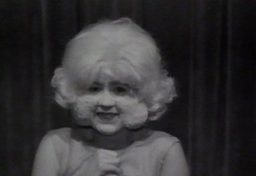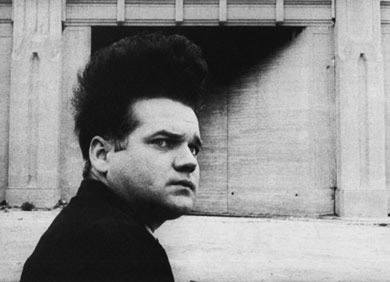

Plot info:
Henry Spencer is a normal guy with an over-active sex drive. Actually, it
probably is only average, but it is more than it should be. One day he gets a
message that Mary called. Mary? He hasn't talked to her for six months. He
thought they broke up, after... sex. Unprotected sex, premarital sex, lust
getting the best of them. What is she up to? She wants to meet him for dinner at
her parents' house. He agrees.
He uncomfortably sits with Mrs. X and explains his life and what he does for a
living. Satisfied, she invites him to the table for dinner. He barely carves the
chicken before Mary relieves herself from the table letting out shouts of tears.
Henry gets up and is immediately confronted by Mrs. X. She makes him feel awkward
and asks him about his sex life. She questions him about his involvement with
Mary. She explains that there was a baby conceived six months prior to their
engagement. How? It was premature, but it was a baby just the same. It resides
at the hospital, and Mrs. X says that he can claim it after he and Mary are
properly married.
What a burden this is! The baby is a deformed freak, tightly bound in white
caste. Henry's life becomes an inescapable hell. He is trapped with a wife he
doesn't love and a baby not even a mother could love. With "The Man in the
Planet" on one shoulder and "The Lady in the Radiator" on the
other, he is torn between good and evil, right and wrong. How can he relieve
himself of this encumbrance? How can he step into the blindingly pure white
light?

About the movie:
David Lynch's first full-length movie took ages to shoot - 5 years. Slowly gaining a small group of devoted followers, Eraserhead entered "regular" cinemas after the release of Fire Walk With Me, including a "refreshed" soundtrack i.e. after being digitally remastered.
Many symbols appearing here will occur later on in many of Lynch's works:
the idea of parallel worlds,
highly contrasted female figures (black and blonde),
the use of certain patterns (the carpet),
the threat of anything related to birth or intercourse, losing your head (Henry and the torn photography of Mary X),
photographs as fetishes and false representations of real human beings (the 2 images of Renee / Alice, Laura Palmer, Jeffrey's misleading pics of the 'well-dressed man' in Blue Velvet, the 'this would look nice on your wall'-picture of Mrs. Chalfont is a 'three-dimensional' picture the connection between food/drinking and sexuality (the 'ecstatic' chicken), 'Here's to your fuck' (Frank Booth), 'Cone - I like to lick' (Audrey Horne), the vampiresque / sexually aggressive Baron Harkonnen, "Agent Cooper loooves coffee"- "Audrey!", the 'freshly squeezed" grapefruits when Agent Cooper eyes Audrey, 'How would you like to take me to dinner?' (Lost Highway) most of Lynch's protagonists are like Henry 'on vacation': The Elephant Man starts with John Merrick losing his 'profession' as an exhibited freak, Jeffrey leaves college, Alvin Straight doesn't work anymore, Sailor Ripley is a man-slaughterer breaking parole the 'dreamy quality', his works rather rely on visual and aural aspects than dialogue and explanations, (so one might replace 'dreamy' by 'filmic' in comparison with most mainstream movies) the protagonists don't 'act' but rather react to absurd, dangerous situations into which they are thrown in the use of 'onscreen'-music (Lady in the Radiator, Julee Cruise, Fred Madison, Love Me Tender, In Dreams, ...)
The
script is only about 22 pages, spoken words are like aliens in this movie,
therefore there are only subtitled versions abroad.

Why is this a great movie?
That's a bit hard to explain. You will either love this film or hate this film. It IS a film that everyone should see once. It borrows heavily from German Expressionism films of the 1920's. The movie deals with themes of parenthood, pregnancy, lust, and maturity. It delves deep into basic fears. Some will hate it because of the fears it brings to the surface. Others will love it for its striking imagery and frank themes. Love it or hate it, this film does create a dialogue. At the time of its release in 1977, there was nothing like it. There are few films, if any, that match the quality of images and themes that this film possesses.